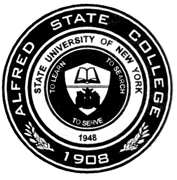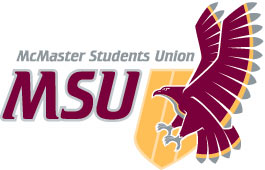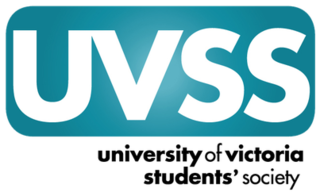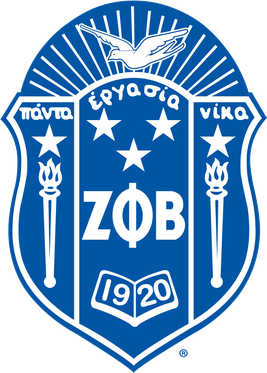
The University of British Columbia (UBC) is a public research university with campuses near Vancouver and Okanagan in British Columbia, Canada. Established in 1908, it is the oldest university in British Columbia. With an annual research budget of $773 million, UBC funds over 10,000 projects a year.
A student society, student association, university society, student club, university club, or student organization is a society or an organization, operated by students at a university, college, or other educational institution, whose membership typically consists only of students and/or alumni.

Alfred State College is a public college in Alfred, New York, United States. It is part of the State University of New York (SUNY) system. The college, formerly the Technical College at Alfred, offers bachelor's and associate degree programs. It is accredited by the Middle States Commission on Higher Education and is a member of the Rochester Area Colleges consortium.

The McMaster Students Union (MSU), is the central undergraduate student government at McMaster University, in Hamilton, Ontario, Canada.

The University of Victoria Students' Society (UVSS) is a student union that represents undergraduate students at the University of Victoria. The students' society was founded in 1921 and incorporated in 1964. It provides services and operates business for students through the Student Union Building (SUB), and historically has advocated for special interests on campus.
The Machine, the former Alpha Rho chapter of Theta Nu Epsilon at the University of Alabama, is a coalition of Panhellenic sororities and IFC and NPHC fraternities that formed a secret society with some degree of influence over campus and Alabama state politics. The group, which has operated in varying degrees of secrecy since 1914, is credited with selecting and ensuring the election of candidates for Student Government Association, Homecoming Queen, and other influential on-campus and off-campus offices, including the Student Government Association Senate. It was evidently first publicly noted as "a political machine" in 1928 by Alabama's campus newspaper, The Crimson White. Then in a 1945 article in the newspaper, it was referred to as "the machine", and the name has stuck ever since. It is alleged that The Machine plays a real role in both the politics of the student community and in the political careers of numerous Alabama politicians.
The University of Ottawa Students' Union (UOSU) (French: Syndicat étudiant de l'Université d'Ottawa; SÉUO) is the student organization representing undergraduate students of the University of Ottawa. It is the successor organization of the Student Federation of the University of Ottawa (SFUO) (French: Fédération étudiante de l'Université d'Ottawa; FÉUO) following its dissolution in 2019.
The Alma Mater Society of the University of British Columbia Vancouver, otherwise referred to as the Alma Mater Society or the AMS, is the student society of UBC Vancouver and represents more than 58,000 undergraduate and graduate students at UBC's Vancouver campus and their affiliated colleges. The AMS also operates student services, businesses, resource groups and clubs. The AMS is a non-profit organization that exists to advocate for student viewpoints and ensure the needs of students are met by the University Administration and the Provincial and Federal governments. The Alma Mater Society is composed of a number of constituency organizations for undergraduate students, and works closely with the Graduate Student Society of UBC.

The Ontario Undergraduate Student Alliance (OUSA) is an alliance of students' unions in Ontario, Canada. Their common objective is to protect the interests of over 160,000 professional and undergraduate, full-time and part-time university students, and to provide research and recommendations to the government on how to improve accessibility, affordability, accountability, and quality of post-secondary education in Ontario.

The Brock University Students' Union (BUSU) is the students' union representing the over 17,000 undergraduate students of Brock University in St. Catharines, Ontario, Canada. BUSU is a founding and current member of the Ontario Undergraduate Student Alliance.

Acacia Fraternity, Inc. is a social fraternity founded in 1904 at the University of Michigan in Ann Arbor, Michigan. The fraternity has 27 active chapters and 3 associate chapters throughout Canada and the United States. The fraternity was founded by undergraduate Freemasons and was originally open only to men who had taken the Masonic obligations, but in 1933 the International Conclave elected to dispense with the Masonic prerequisite. In 1988, at the 45th Conclave, the fraternity elected to use "International" rather than "National" when referring to the fraternity.

Zeta Phi Beta Sorority, Inc. (ΖΦΒ) is a historically African American sorority. In 1920, five women from Howard University envisioned a sorority that would raise the consciousness of their people, encourage the highest standards of scholastic achievement, and foster a greater sense of unity among its members. These women believed that sorority elitism and socializing overshadowed the real mission for progressive organizations. Since its founding Zeta Phi Beta has historically focused on addressing social causes.
Engineering Undergraduate Society (EUS), is the engineering society at the University of British Columbia. It organizes Engineering department events but is perhaps best known for practical jokes it has played in the past, including hanging the frame of a Volkswagen Beetle off bridges. The members of the EUS are known for their pride of being engineering students and conspicuous displays thereof. EUS members often incorrectly refer to themselves as Engineers even though they are Engineering Students.

The Otago University Students' Association (OUSA) is the Students' Association of the University of Otago, New Zealand. OUSA was founded in 1890 to advance student interests on campus.

Delta Phi Epsilon (ΔΦΕ) or Delta Phi Epsilon Foreign Service Council the largest national American professional foreign service fraternity and sorority. Founded on January 25, 1920, it was the first fraternity dedicated to careers in foreign diplomacy in trade. Its Alpha chapter went on in the first half of the twentieth century to colonize new chapters at many other universities throughout the country, although most chapters went defunct in the latter half of the century. In 1973 Delta Phi Epsilon Foreign Service Sorority was founded, with its Alpha chapter at Georgetown University. As of 2021, there remained ten active collegiate chapters, half of which were created between 2016 and 2018.
The Central Student Association is the student union for all undergraduate students at the University of Guelph.

Student governments in the United States exist in both secondary and higher education. At the collegiate level, the most common name is Student Government, according to the American Student Government Association's database of all student governments throughout the United States. The next most common name is the student government association. Other names are student senate, associated students, or less commonly students' union. There was one instance of a government of the student body, at Iowa State University. At Yale University, the undergraduate student government is known as the Yale College Council. High school student governments usually are known as Student Council.

Clemson University opened in 1893 as an all-male military college. It was not until seventy years later in 1959 that the first fraternities and sororities arrived on campus. In the 1970s, they became recognized as national fraternities and sororities. The Greek life has now increased to 44 chapters on campus: fraternities and sororities from the National Panhellenic Conference, the North American Interfraternity Conference, the Multicultural Greek Council, and the National Pan-Hellenic Council.

The George Washington University Student Government Association is the student government of the George Washington University in Washington, DC. The SGA is responsible for advocacy on behalf of the GW student body at and is modeled after the U.S. Federal Government and consists of three branches: legislative, executive and judicial.
Fraternities and sororities, collectively referred to as Greek Life, are social organizations at North American colleges and universities. Generally, membership in a fraternity or sorority is obtained as an undergraduate student but continues thereafter for life. Some accept graduate students as well. Individual fraternities and sororities vary in organization and purpose, but most share five common elements:
- Secrecy
- Single-sex membership
- Selection of new members based on a two-part vetting and probationary process known as rushing and pledging
- Ownership and occupancy of a residential property where undergraduate members live
- A set of complex identification symbols that may include Greek letters, armorial achievements, ciphers, badges, grips, hand signs, passwords, flowers, and colors













